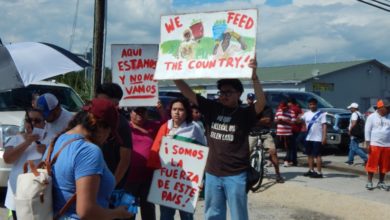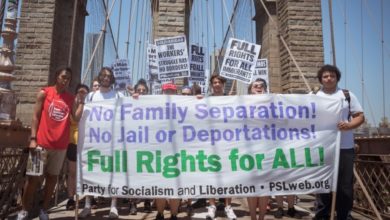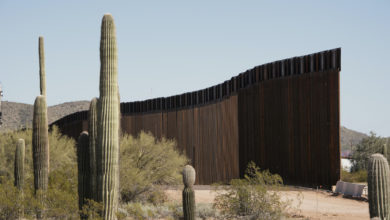The files of Republican operative Thomas B. Hofeller, the “Michelangelo of Gerrymandering,” provide hard evidence of a conspiracy to use the 2020 Census to disenfranchise Latino voters. Hofeller was a major contributor to the Department of Justice’s memo requesting the addition of a citizenship question to the upcoming Census — a measure that is now being challenged in the U.S. Supreme Court.
The Department of Justice’s memo claimed the citizenship question was necessary to enforce the 1965 Voting Rights Act. Civil rights advocates called this a lie, asserting that the question is intended to intimidate immigrants from filling out the Census. Population data gathered in the U.S. Census is used to determine voting districts and funding for social programs.
The new evidence shows that Hofeller conducted a study — sponsored by a right-wing billionaire — back in 2015 on the potential impact of a citizenship question, and concluded that it would boost the right-wing political bloc and relative weight of “non-Hispanic whites”, and would suppress in particular the political representation of areas with a significant Latino majority. This directly contradicted the sworn testimony of Census official Mark Neuman, a Trump appointee, who said that Hofeller had told him the citizenship question would increase Latino voter turnout.
Hofeller recently died and his daughter, who disagreed with his politics, found the documents on his hard drive and turned them over to investigative journalists. There are just a few weeks before the U.S. Supreme Court rules on the constitutionality of the citizenship question, and it is unclear if the new findings will impact the ruling. Initial signs showed that the conservative majority of the Court would allow the question; they dismissed.
The Supreme Court has upheld several of the Trump Administration’s racist anti-immigrant initiatives including the revised “Muslim ban.”
There are an estimated 11 million undocumented people in the US, and 26 million immigrants who have legal status but are not citizens.
Regardless of the Census Bureau’s claims that there is a strict firewall between it and other agencies — prohibiting it from sharing individuals’ data — many rightfully do not trust the U.S. government given the current anti-immigrant crusade, the deployment of thousands of troops to the border to stop Central American asylum seekers, and the effort to revoke DACA (Deferred Action for Childhood Arrivals)..
Low census responses could mean less congressional seats for states with significant immigrant populations. This in turn has an impact on Electoral College votes that determine the outcome of presidential elections.
On the basis of Census results, the federal government distributes more than $800 billion in funds for more than 300 federal programs and social services, from community health centers to schools and infrastructure. A low Census turnout would leave many struggling working-class communities in immigrant-dominant states with even fewer resources. Already, undocumented immigrants contribute billions in taxes towards benefits they can’t access.
The Trump administration’s attempt to include the question on a Census form was challenged at district level courts of so-called “blue states” like California, New York, and Maryland, which ruled against the inclusion of the question in the 2020 census in the face of multiple lawsuits. Dept. of Commerce v. New York, the case that will determine the legality of including or excluding the question, was expedited to the Supreme Court in an unusual manner upon request from the Trump administration.
The nine members of the Supreme Court, all rich lawyers who are appointed for life, now has a clear right wing majority. The final ruling is expected by late June.
But the courts and even the Trump administration are not, however, immune to the struggle. A mass immigrant rights movement in 2006 defeated a draconian racist bill that would have criminalized the undocumented, and those who provide them shelter, food and health care. That type of movement, to unleash the social force of tens of millions of people, is needed again to push back against the Trump administration’s anti-immigrant crusade.






